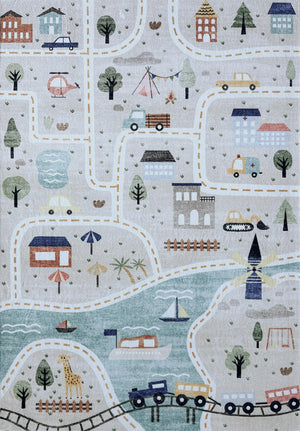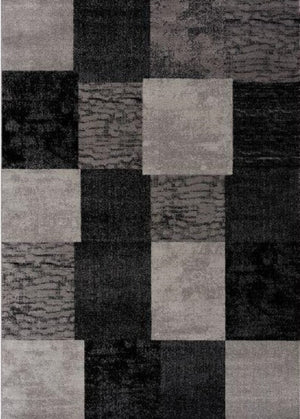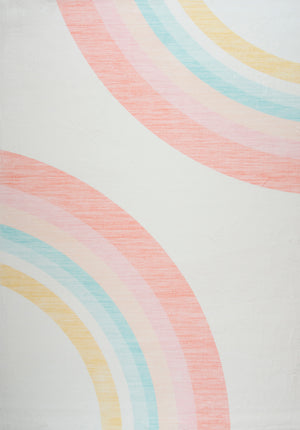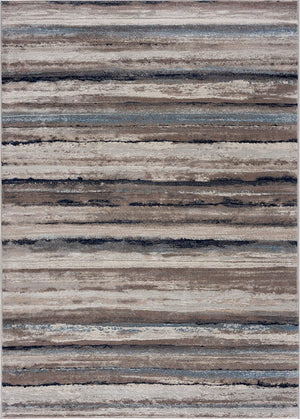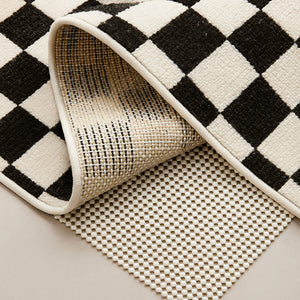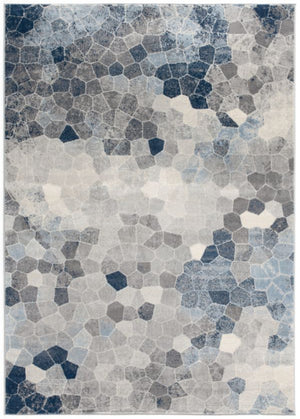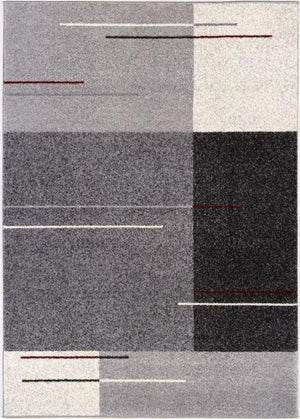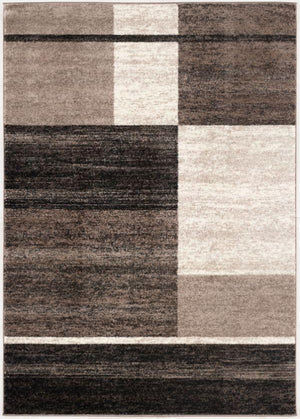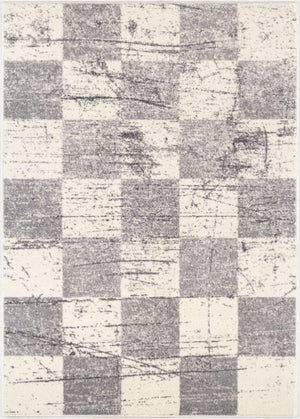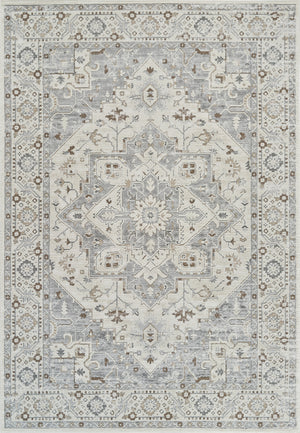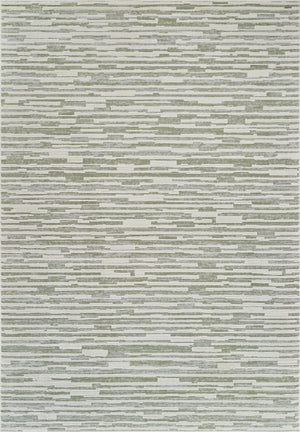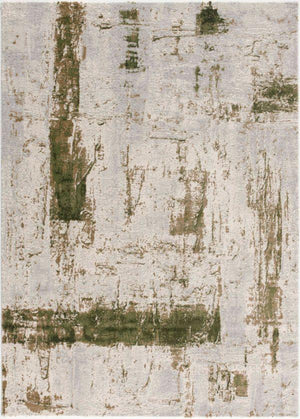
How to Use Area Rugs to Define Spaces in Open-Concept Homes
Share
Open-concept homes are incredibly popular for their spaciousness, modern design, and fluidity between living spaces. However, one common challenge with open layouts is defining different areas while maintaining a cohesive look. Area rugs are an ideal solution to help structure and style these open spaces. In this guide, we’ll explore the benefits of using rugs to define spaces, provide rug placement tips, and offer advice on how to choose the best rugs for your home.
Whether you’re looking for rug ideas for living and dining rooms or want to learn about rug sizes for open layouts, we’ve got you covered. Let’s dive in!
The Importance of Area Rugs in Open-Concept Homes
Why Defining Spaces Matters in Open Layouts
In open-concept homes, the lack of walls or clear divisions between areas can sometimes make it hard to distinguish between functional spaces. Defining spaces with area rugs allows you to create distinct zones for dining, lounging, and working, without disrupting the flow of the room. A well-placed rug acts as a visual boundary, signaling where one area begins and another ends.
Enhancing Flow and Functionality with Rugs
Strategically placing rugs can also improve the overall functionality and flow of the home. For example, rugs for large spaces can guide foot traffic while also softening the room's acoustics. This makes the home feel cozy and organized, even without physical partitions. By understanding rug placement in open floor plans, you can create a more intuitive and practical layout.
Choosing the Right Size for Each Space
The size of your rug is crucial to ensuring it enhances, rather than overwhelms, the space. When choosing modern area rugs for open floor plans, always consider the dimensions of each functional area.
Living Room Rug Placement
For the living room, ensure that the rug is large enough to fit under the front legs of all major furniture pieces, like sofas and chairs. This rug placement in open-concept living areas helps anchor the furniture and provides a natural focal point.
Dining Area Rug Dimensions
In the dining room, the rug should extend beyond the dining table, ideally allowing space for chairs to be pulled out without falling off the edge. Rug ideas for living and dining rooms should emphasize comfort, functionality, and visual harmony between the two spaces.
Bedroom Rug Layouts in Open Spaces
In open-concept bedrooms, a rug can help create a cozy, defined sleeping area. Place a rug under the bed, making sure it extends beyond the bed frame to ensure that it's visible and functional.
How to Use Rugs for Visual Contrast
Bold Patterns for Distinct Areas
One way to visually separate areas in an open-concept home is by choosing rugs with bold patterns for different zones. For instance, a geometric rug in the dining room and a floral design in the living room can distinguish the two spaces while adding personality to the decor.
Neutral Rugs for Seamless Transitions
If you prefer a more subtle approach, neutral rugs work well for blending spaces. A monochromatic color palette can unify different areas, maintaining an open, airy feel. Neutral rugs also allow other elements, like furniture or wall art, to take center stage.
Layering Rugs for a Custom Look
Layering rugs is a stylish technique for adding texture and depth to your home. Try pairing a large neutral rug with a smaller patterned one to create a focal point. This method also helps to further define spaces without the need for dramatic design choices.
Creating Focal Points with Rugs
Highlighting Key Furniture Pieces
Using area rugs to highlight key furniture pieces is an excellent way to draw attention to the most important aspects of your room. Whether it’s a sleek coffee table in the living room or a chic dining set, the right rug can serve as a backdrop that enhances your furniture.
Using Rugs to Anchor Different Zones
In an open-concept home, rugs can help anchor furniture arrangements. By centering your seating area on an appropriately sized rug, you create a sense of unity and purpose within a larger, multifunctional space.
Mixing Rug Styles and Textures for Cohesion
Blending Modern and Traditional Rugs
For homeowners who appreciate an eclectic style, mixing different rug designs—such as modern and traditional—can add a unique flair to your open-concept home. Just be sure to keep the color palette consistent to avoid clashing.
Complementing Room Colors with Rug Choices
When choosing rugs for open-concept homes, consider how the rug’s colors will complement your existing decor. If your space has a lot of warm tones, a rug with complementary shades will tie the room together beautifully.
Practical Tips for Area Rug Maintenance in Open-Concept Homes
Cleaning and Care Tips for High-Traffic Areas
Open spaces often mean more foot traffic, so keeping your area rugs clean is essential. Vacuum regularly and address spills immediately to preserve the beauty of your rug. For high-traffic zones like living and dining areas, look for durable rugs made from materials like wool or synthetic blends.
Selecting Durable Rugs for Busy Households
Durability is key when selecting area rugs for open-concept homes. Opt for rugs that can withstand daily wear and tear, especially in spaces with pets, children, or frequent guests. Wool rugs are a great choice for their longevity and resilience.
Conclusion
In conclusion, decorating open spaces with rugs is not only a practical solution for defining different zones, but it also adds style and warmth to your home. From choosing the right size and pattern to mixing textures, the possibilities are endless. High-quality rugs not only enhance the look of your space but also provide comfort and functionality.
Ready to elevate your open-concept home with stunning area rugs? Explore Rug Branch’s extensive collection of modern area rugs for open floor plans and find the perfect rug for your space today! Visit our collection here.
By following these tips and choosing the right rugs, you’ll transform your home into a beautifully coordinated and functional space.












